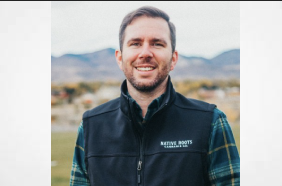The New Mexico Political Report writes
As part of the process to set up a recreational-use cannabis industry in New Mexico, the state’s Regulation and Licensing Department and it’s Cannabis Control Division held a public rulemaking hearing on Wednesday regarding residual solvents in cannabis manufacturing and requiring employers to work with labor unions. The proposal to require cannabis businesses to enter into a labor peace agreement with a labor union, as a condition of state licensure, did not receive much support during the hearing.
Out of the handful of people who testified during the hearing, only one person spoke about allowable solvents used to manufacture cannabis extracts and only one person spoke in favor of the labor peace agreement proposal.
The labor agreement proposal, if approved by RLD Superintendent Linda Trujillo, would require employers to enter into an agreement with a “bonafide labor organization that is actively engaged in representing or attempting to represent the applicant’s employees,” and that agreement would have to be “an ongoing material condition of licensure.”
But the proposal would also prohibit a labor union from organizing protests against the company.
“For purposes of this section, a labor peace agreement between a cannabis establishment and a bona fide labor organization includes protecting the state’s interests by, at a minimum, prohibiting the labor organization from engaging in picketing, work stoppages, or boycotts against the cannabis establishment,” the proposal reads.
Timo Serna, who said he was in favor of requiring labor agreements during his testimony and that he plans on opening a cannabis microbusiness with the hopes of expanding, argued that prohibiting strikes and walk-outs strips the rules of any effectiveness.
“That basically takes away all the power that the employees have and being a part of a union becomes largely symbolic, because all that’s governing that is pieces of paper at that point,” Serna said. “There’s nothing else that is going to ensure that employees’ voices are going to be heard.”
Besides the one comment on solvents, all of the other participants argued that mandating a labor union agreement as a condition of licensure is a regulatory over-step by the department.
Duke Rodriguez, the CEO and president of Ultra Health, one of the state’s more prolific medical cannabis producers, argued that not only is a required labor agreement an overstep but that it is illegal and hinted that it would likely open the department to a lawsuit.
“This mandate is punitive to a new industry,” Rodriguez said. “How would other industry professionals respond if labor peace agreements were mandated for every license RLD currently manages? There would be an uproar.”
Rodriguez added that Ultra Health is “committed to workplace well-being” and that starting next year the company will start paying its 300 employees at least $15 per hour.
Kristina Caffrey, a lawyer for Ultra Health also spoke about the legality of mandating labor agreements. Caffrey said that while labor agreements may sound like a good idea, there is nothing in state or federal law that allows those agreements to be mandatory.
“The New Mexico Constitution does not have a good idea clause,” Caffrey said. “And what I mean by that is just because something is a good idea, an agency does not automatically have the authority to implement that idea.”
Ben Lewinger, the executive director of the New Mexico Cannabis Chamber of Commerce, argued that requiring a labor agreement through rules, when the Cannabis Regulation Act was ultimately amended to remove any labor union requirements, demeans the role of lawmakers.
“Attempting to pass this rule now, in this manner, skirts the statutory authority of the Legislature and deprives all New Mexicans of the transparent ongoing discussion that is already underway by elected lawmakers,” Lewinger said. “This is a complex policy issue for a new and complex industry, and I urge the CCD and RLD to ensure that there is adequate policy discussion in the appropriate setting—the Legislature—and that a hastily crafted labor peace agreement rule is not forced through, administratively in the 11th hour.”
Tony Martinez, a co-owner of Lava Leaf Organics, the first company to receive a cannabis business license from RLD, said that he is not against employees seeking union representation in certain circumstances. But, Martinez said, requiring union agreements this early on will hinder companies like his from establishing their own fair working practices.
“We’ve been investigating employee-owned and cooperative business models and we just feel like at this time, this isn’t the time and this rulemaking process isn’t the place to implement these types of procedures.”
Wednesday’s hearing was only an initial stage of finalizing the rules and the hearing officer will still have to finalize and send his report to RLD for final approval. Changes could still be made to the proposal without another public hearing and Superintendent Trujillo has the final approval power.
NM Cannabis Control Division considers requiring union agreements as part of licensure

















